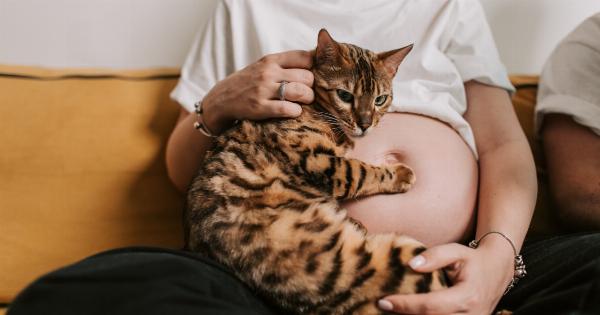If you’re pregnant and own a pet, you might be wondering if it’s safe to keep your furry friend around during your pregnancy.
While there are some risks associated with pet ownership during pregnancy, research shows that having a pet can offer a number of benefits for both you and your baby. Read on to learn more about the latest research on pregnancy and pet ownership.
Benefits of Pet Ownership During Pregnancy
Many women worry that pet ownership during pregnancy could cause harm to their unborn child, but research actually shows that having a pet can provide a number of benefits for expectant mothers and their babies. Here are just a few:.
Pets Can Help Reduce Stress
Studies have shown that spending time with a pet can help reduce levels of the stress hormone cortisol in pregnant women. Lower levels of stress can lead to better overall health and a reduced risk of complications during pregnancy.
Pets Can Help Increase Exercise Levels
Dogs, in particular, can help pregnant women get more exercise by providing a reason to go for walks. Regular exercise during pregnancy is important for both the mother and the baby, and having a pet can help pregnant women stay active.
Pets Can Help Boost Immune Function
Another benefit of pet ownership during pregnancy is that pets can help boost immune function in both the mother and the baby. Studies have shown that children who grow up with pets are less likely to develop allergies and asthma later in life.
Risks of Pet Ownership During Pregnancy
While there are many benefits to having a pet during pregnancy, there are also some risks that pregnant women should be aware of. Here are a few:.
Bacterial Infections
Pregnant women are at increased risk of contracting certain bacterial infections from their pets, such as salmonella and campylobacter.
These infections can be dangerous for the mother and the baby, so it’s important to practice good hygiene when handling pets.
Toxoplasmosis
Toxoplasmosis is a parasitic infection that can be transmitted to humans by cats.
While the risk of contracting toxoplasmosis is relatively low, pregnant women should take precautions when handling cat litter or gardening, as these are common sources of infection.
Allergies
Pregnant women who are allergic to their pets may experience worsened symptoms during pregnancy. In some cases, this can lead to complications such as asthma attacks or anaphylaxis.
Tips for Safe Pet Ownership During Pregnancy
If you decide to keep your pet during pregnancy, there are some steps you can take to minimize the risks and ensure a safe and healthy pregnancy. Here are some tips to keep in mind:.
Practice Good Hygiene
Wash your hands thoroughly after handling pets or their toys, food, or bedding. It’s also a good idea to avoid contact with pet feces if possible, or wear gloves if you need to handle it.
Delegate Pet Care
If possible, delegate pet care tasks to someone else in the household. This can help reduce the risk of exposure to bacteria or parasites that can harm you or your growing baby.
Avoid Certain Activities
Avoid cleaning litter boxes or gardening, as these activities can increase the risk of toxoplasmosis. It’s also a good idea to avoid contact with sick animals or animals that may be carrying infectious diseases.
Conclusion
The latest research on pregnancy and pet ownership shows that while there are some risks associated with pet ownership during pregnancy, the benefits can far outweigh the risks.
If you’re pregnant and own a pet, there’s no need to panic – just take a few simple precautions to ensure a safe and healthy pregnancy for you and your furry friend.




























